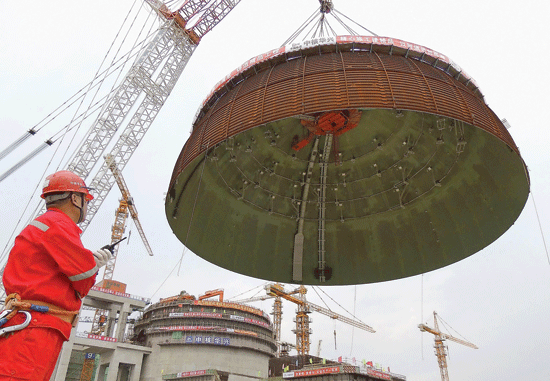

BEIJING: Money is leaving China faster than ever, according to a Bloomberg gauge tracking capital flows. An estimated $141.66bn left China in August, exceeding the previous record of $124.62bn in July, data compiled by Bloomberg show.
The gauge of so-called “hot money” is an estimate of the sum of foreign exchange purchases by banks and the change in foreign exchange deposits to measure flows into and out of the country.
The monthly trade and direct investment balances are netted out for an estimate of portfolio flows. An exporter choosing to keep foreign earnings offshore would show as a capital outflow.
The capital flight came as the People’s Bank of China shocked global markets by devaluing the yuan on August 11, triggering a worldwide drop in commodities, equities and emerging-market currencies.
Chinese Premier Li Keqiang tried to soothe investor concerns this month by calling his country a global growth engine instead of a source of risk, while President Xi Jinping has stuck to a similar script while on his first state visit to the US this week.
“My worry is that, given the relatively large economic downward pressure, as China is opening up the capital account, it means more money will leave China,” Huang Yiping, a PBOC adviser and Peking University economics professor, said on a WEF panel discussion this month in Dalian, China. “If there’s an overall capital outflow in the future, it will bring depreciation pressure.”
“The current capital outflow is just a temporary market reaction,” Sheng Songcheng, head of the PBOC’s statistics and analysis department, said Friday at a conference in Shanghai. China’s economic slowdown, rising debt level and stock market swings all can cause “short-term” panic for investors, he added. Sheng reiterated the official stance that the “yuan weakness is a short-term thing” and that the currency will not depreciate continuously.
August outflows probably increased to $178bn, Goldman Sachs Group Inc. analysts led by Senior China Economist MK Tang at wrote in a note this month. A potential source may be Chinese companies reducing foreign-exchange liabilities by repaying debt in other currencies and taking advantage of lower domestic funding costs, they said.
A Federal Reserve interest rate increase would likely boost the value of the dollar, making debt denominated in the currency more expensive to repay. Fed Chair Janet Yellen said in a speech on Thursday the US central bank is on track to raise interest rates this year, even as she acknowledged that economic “surprises” could lead them to change that plan.
WP-Bloomberg